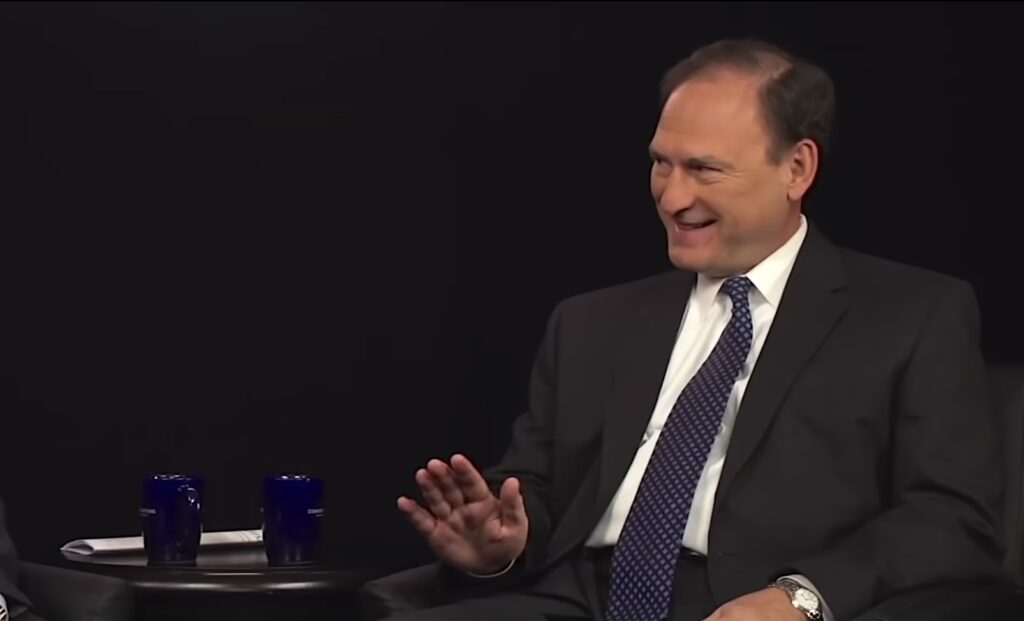Justice Alito warns of ‘virus’ on race-based school admissions in sharp dissent to SCOTUS petition denial
In a 10-page dissenting opinion, Supreme Court Justice Samuel Alito warned that a decision by a lower court to allow race-based admissions is a “virus that may spread” if not changed.
The…

In a 10-page dissenting opinion, Supreme Court Justice Samuel Alito warned that a decision by a lower court to allow race-based admissions is a “virus that may spread” if not changed.
The dissent comes as the Supreme Court declined to review a case in which the Appeals Court in the Fourth Circuit gave the go-ahead to a Virginia school’s policy, which practically limits the number of applicants by race.
Thomas Jefferson High School for Science and Technology instituted admissions policies that seemed to penalize Asian applicants by giving an advantage to students from lower income families, reported local WUSA 9 News.
In effect, the policies have considerably boosted the admissions of African-American and Hispanic students and have reduced the number of admissions of Asian students by nearly 50%.
A group of parents called Coalition for TJ was suing the Fairfax County School Board over the policy changes allegedly targeting Asian students.
Supreme Court reporter Amy Howe summarized how the case ended up at the Supreme Court:
“U.S. District Judge Claude Hilton agreed with the challengers and barred the school from using the new admissions policy. But after the U.S. Court of Appeals for the 4th Circuit put Hilton’s ruling on hold during the school board’s appeal, the challengers came to the Supreme Court in April 2022, asking the justices to reinstate Hilton’s order.”
Tuesday, the Court declined to hear the case.
Alito was joined in his dissent by Justice Clarence Thomas.
“The Court of Appeals’ decision in this case is based on a patently incorrect and dangerous understanding of what a plaintiff must show to prove intentional race discrimination,” wrote Alito.
On the face of it, he argued, the Fairfax County School Board instituted policies intended to discriminate against one particular racial group for the benefit of other racial groups.
Previous admissions policies were “race neutral” and “competitive” and resulted in Asian students being admitted at high rates compared to the school district’s demographics, simply because Asian students outperformed in testing and grades.
Then, in 2020, district officials set out an email “lamenting that the school did ‘not reflect the racial composition in’” the district, said Alito.
That email resulted in angry demands by district residents that something be done to change the racial composition of the school.
The school board then instituted policies that no longer used grades and test scores as the main criteria for admissions, but instead allocated seats at the high school on the basis of the district’s middle schools, with a small portion admitted on the basis of other requirements such as English language status, free and subsidized school lunches and special education.
Administrators argued that because Asian students were still highly represented, the drop in Asian enrollment didn’t matter.
But the fact that the policy change weighed “more heavily” on Asian students, “effectively licenses official actors to discriminate against any racial group with impunity as long as that
group continues to perform at a higher rate than other groups,” argued Alito.
“What the Fourth Circuit majority held, in essence, is that intentional racial discrimination is constitutional so long as it is not too severe,” he continued. “This reasoning is indefensible, and it cries out for correction.”
Alito said the “fallacious reasoning [of the Fourth Circuit Court] works a grave injustice on diligent young people who yearn to make a better future for themselves” and warned the court’s “reasoning is a virus that may spread if not promptly eliminated.”
Alito noted that the First Circuit Court has already cited the decision as precedent in another case involving race.



